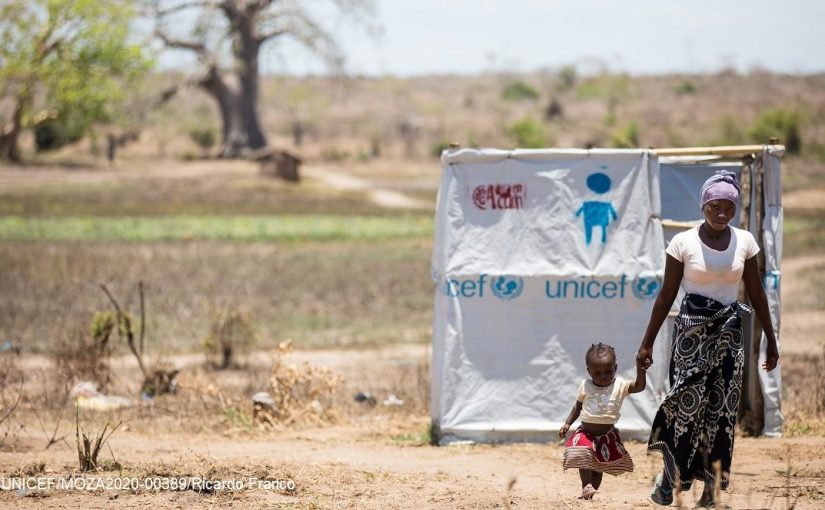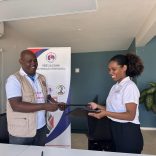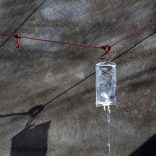Mozambique: Health Ministry confirms shortage of BCG vaccine
UNICEF needs over 55 million dollars for Mozambique

FILE PHOTO - For illustration purposes only. [File photo: Twitter / @UNICEF_Moz]
The United Nations Children’s Fund (UNICEF) on Thursday warned in its latest situation report that it needs 55.7 million US dollars for its life-saving and life-sustaining work with children and their caregivers in Mozambique.
The organisation’s 2021 Humanitarian Action for Children appeal was revised upwards in June to 96.5 million dollars due to escalating needs, particularly in the northern province of Cabo Delgado where islamist terrorists have chased people from their homes, farms, and workplaces.
However, at the end of October it had only received 27.5 million dollars in funds from its donors which, together with a 13.3 million dollar carry-forward, leaves a 58 per cent funding gap.
According to figures released by UNICEF, the most neglected areas are its Education programme which has a funding gap of 84 per cent, and its Child Protection programme which has a 67 per cent gap in its budget. Its Social Protection programme has a 62 per cent funding gap.
UNICEF thanks its donors for funding the appeal: the governments of Canada, Italy, Japan, Norway, Sweden, the United Kingdom, and the United States.
Contributions have also been received from the Directorate-General for European Civil Protection and Humanitarian Aid Operations (ECHO), Education Cannot Wait, The Global Vaccine Alliance, the Japan National Committee for UNICEF, and the UN’s Central Emergency Response Fund. UNICEF Mozambique has received $5 million in fully flexible humanitarian funding from UNICEF’s global humanitarian thematic account to meet some of the urgent and unfunded needs.
UNICEF points out that the latest figures from the International Organisation of Migration put the number of internally displaced people in Cabo Delgado at 744,949. However, that figure is from September and since then the Mozambican defence and security forces, along with their allies from the Southern Africa Development Community Mission in Mozambique (SAMIM) and Rwanda have continued to make progress in returning security to areas affected by terrorist attacks but it will take a long time to revive the local economy. Thus, UNICEF comments that “in Cabo Delgado, internally displayed people are hoping to return to areas cleared by security forces, but insecurity is still a concern”.
It continues that “many areas have been cleared by the Armed Forces in Cabo Delgado; however, the situation remains volatile in some locations. While the non-state armed groups (NSAG) no longer have consolidated bases due to the ongoing clearing operations of the Government and joint security forces, small-scale attacks still occur and new tactics—such as the use of improvised explosive devices—are seen with increasing frequency”.
UNICEF warns that “Government facilities and staff continue to be a primary target, though there are also continued attacks on civilian populations”. It adds that “while many IDPs want to return home, movements are still very limited” and that “food insecurity is likely to persist given lack of access to livelihoods as well as insecurity for traders and frequent interdiction of trade between Pemba and hard-to-reach areas such as Palma and Mocimboa da Praia which further limits access and availability”.
Mozambique’s government is already working to improve the situation for returnees. Speaking to the Mozambican parliament, the Assembly of the Republic, at the end of October, Prime Minister Carlos Agostinho do Rosario pointed out that a reconstruction plan is now under way in Cabo Delgado which “seeks fundamentally to guarantee the essential conditions for bringing life back to normal in the areas affected by terrorism”. The top priority, the Prime Minister said, “is to guarantee emergency food aid to the people living in the affected areas and to those who have just returned to their zones of origin”.
He added that the government is restoring basic services and that the districts of Macomia, Mocimboa da Praia, Mueda, Nangade, Quissanga and Palma have all been reconnected to the national electricity grid. Damaged low and medium voltage transmission lines in the district capitals have been repaired. The water supply system in Mocimboa da Praia town has been put back into working order, said the Prime Minister, and mobile phone coverage has been restored in Mocimboa da Praia and Palma.
The total cost of the recovery plan is put at 300 million US dollars, of which 200 million are for activities that will have an immediate impact on people’s living standards.












Leave a Reply
Be the First to Comment!
You must be logged in to post a comment.
You must be logged in to post a comment.